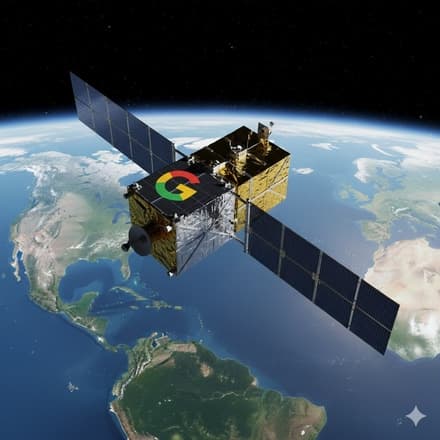Google's Project Suncatcher Aims for Scalable AI Compute in Space by Early 2027

Google has unveiled Project Suncatcher, an ambitious initiative to establish scalable machine learning compute systems in space, leveraging solar-powered satellites equipped with its Tensor Processing Units (TPUs). The company, known for its "moonshot" projects, plans to launch two prototype satellites in partnership with Planet by early 2027, marking a significant step towards harnessing the sun's abundant power for AI workloads. This move could fundamentally reshape AI infrastructure, moving beyond earthbound data centers.
Sundar Pichai, CEO of Google and Alphabet, announced the project, stating, > "Our TPUs are headed to space! Project Suncatcher is exploring how we could one day build scalable ML compute systems in space, harnessing more of the sun’s power." He highlighted the inspiration drawn from past moonshots, including quantum computing and autonomous driving, emphasizing the long-term vision behind the endeavor. The sun emits power vastly exceeding humanity's total electricity production, making space an ideal location for continuous energy capture.
Early research into Project Suncatcher has yielded promising results regarding hardware resilience. Google's Trillium-generation TPUs, purpose-built for AI, were subjected to particle accelerator tests simulating low-earth orbit radiation levels. The company reported that the TPUs "survived without damage," demonstrating a surprising degree of radiation hardness for space applications, with memory components showing irregularities only after a cumulative dose significantly higher than expected mission doses.
Despite these initial successes, significant engineering challenges remain, including thermal management, high-bandwidth inter-satellite and ground communications, and ensuring on-orbit system reliability. Google's research paper details the necessity of maintaining tight satellite formations for high-bandwidth optical links and the complex orbital dynamics involved. The 2027 prototype launch with Planet is designed as a learning mission to address these hurdles and validate the technology in a real-world space environment.
The economic feasibility of space-based data centers also hinges on declining launch costs. Google's analysis projects that launch prices could fall to less than $200/kg by the mid-2030s, potentially making the operational costs of space-based AI compute comparable to terrestrial data centers. This development could offer an environmentally beneficial solution by reducing the energy and water demands currently placed on Earth's resources by large-scale AI infrastructure.